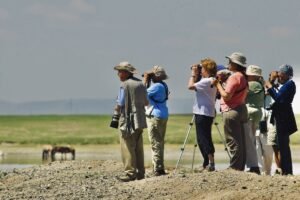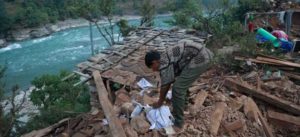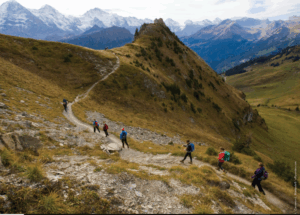How Travel Recovery Is Affecting Gaming Capitals of the World

Tom Ricci —–
The gaming industry was hard hit during the pandemic travel bans. The U.S. casino revenues plunged 31.3% in 2020 — the lowest level since 2003 — with Las Vegas revealing a loss of 24,520 jobs and more than $206.4 million in gambling revenue. On the other hand, Macau, the world’s largest gaming hub, reported its highest level of unemployment since 2009.
How are these gaming capitals faring now that travel restrictions are lightening up around the world?
COVID-19 and gaming
The pandemic led to immediate travel restrictions and social distancing protocols. This resulted in a major loss of revenue for gaming capitals across the world, who make the majority of their revenue from tourists instead of locals.
It’s clear that COVID-19 changed the poker industry and the culture around gaming, particularly after most casinos closed down in March 2020. There were limited casino openings in May 2020, but with the exclusivity and tight hygiene protocols, many poker players improvised and the popularity of online poker soared.
Meanwhile, areas reliant on physical players have struggled to adapt — Macau’s government announced the partial restart of tourist visas as early as August 2020. This included the resumption of the individual visit scheme (IVS) and group visa issuance, further opening travel between China and Macau.
Even with experiments with safety protocols as the number of cases fluctuated, however, it’s clear that gaming isn’t the same. Plexiglass dividers and face masks added a level of difficulty in assessing tells while mid-game, and the amount of players were still numbers off from pre-pandemic levels.
Developments in the travel industry
As the pandemic wanes, travel restrictions in most countries have lightened, signaling recovery as gaming capitals have been allowed to receive foreign tourists once again.
Las Vegas has seen gains in tourism recovery, with record air arrivals into Harry Reid International Airport. The travel industry of many other gaming capitals across the world have similarly amped up their marketing campaigns to invite tourists. An example is “Monaco FOR YOU. At last!” slogan highlighting the country’s many attractions.
Challenges still remain, however. Many aviation companies were forced to lay off flight crew during the early days of the pandemic, and are currently rushing to compensate as countries reopen their borders. Industry experts project that major U.S. airlines will need to hire 14,500 pilots each year until 2050 in order to meet demand.
Slow recovery
The ease of travel restrictions has been transformative for gaming capitals such as Las Vegas or Monaco. However, the rate of recovery differs across the globe, and travel recovery has not proven beneficial in some areas.
Despite attempts to welcome tourists, many factors — such as the COVID Zero policy and local policymakers’ attempts to reduce their dependence on the gaming industry — show that casino suppliers are moving out of Macau. Instead, they are relocating their staff to the more welcoming markets of the Philippines and Singapore, which are also the two countries leading in airline bookings in Southeast Asia.
These are two countries that can look forward to positive growth in the gaming industry, with the Philippines expecting to recover to its pre-pandemic position by 2026 or even overtake it. Rob Goldstein, Las Vegas Sands chief, notes that the gaming levels of Singapore won’t fully rebound until international travel returns to pre-pandemic levels. This could change, however, as investments in hiring in the airline industry and easing travel restrictions soar.
The recovery of travel goes hand in hand with the recovery of the global gaming industry. We can expect more progress as the world returns to normal. For updates, gaming enthusiasts can watch out for the latest traveling news here on TBN.















